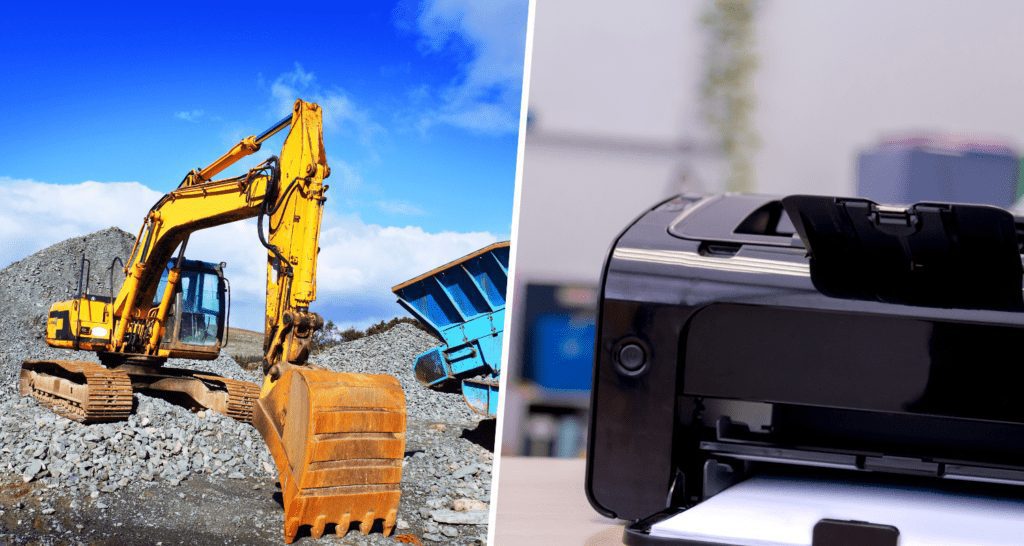5 ways asset finance can help your business grow
26th January 2022
Share this story
Businesses are bouncing back from a difficult few years, with many business owners looking for new and creative solutions to assist the growth of their businesses.
One of the ways businesses can improve their growth is with Asset finance.
What is asset finance?
Asset-based financing is a flexible solution for businesses wanting to fund equipment, machinery, and vehicles.
It allows businesses to spread the cost of equipment over a set period while benefitting from the use straight away.
How asset finance can help your business grow
Flexibility
With a number of finance options available, and the ability to finance just about anything, asset finance gives business owners a flexible solution to acquiring equipment that is vital to growth.
Types of asset finance agreements
Finance lease
A Finance Lease allows your business to use and benefit from an asset without ownership. It is a contract between a lessor and lessee where the lessee requires the use of business equipment, vehicles, or machinery. The lessor provides the use of such equipment in exchange for pre-agreed regular payments. This is a great option for businesses that need expensive equipment but do not want to purchase them outright.
Hire Purchase
Hire Purchase (HP) is a type of finance that allows you to buy vehicles or assets outright without having to pay the whole amount in one go.
You would (usually) pay a deposit and then pay off the value of the asset in agreed monthly instalments over a fixed period, with the loan secured against the asset. Meaning, you won’t own the asset until the last payment is made (including a possible balloon payment or marginal charge for the transfer of ownership).
Operating Lease
An Operating Lease is an agreement that would allow you to use an asset for a fixed period, but you won’t own the asset. It is a form of “off-balance-sheet financing” that allows businesses to use assets over a fixed time period without the responsibilities of ownership. At the end of the agreement, the asset is usually sold or re-hired by the leasing company.
This is a popular way of financing cars and light commercial vehicles. It allows you to use the vehicles for a set time period in return for a fixed monthly payment.
You do not own the vehicle and at the end of the term, the vehicle is handed back to the leasing company. The liabilities for the asset stay with the leasing company, but you would be expected to maintain the vehicle to an agreed standard.
Almost any type of asset can be funded and can be classified into two groups.
Hard assets
Hard assets include large-scale machines such as diggers, forklift trucks, and, printing machines, as well as vehicles and property.
Soft assets
Soft assets are usually smaller pieces of equipment such as furniture, computers, phone systems or, security equipment.

Cash flow
Buying and paying for expensive equipment upfront can be impractical and potentially damaging to a business’s cash flow. By financing the equipment via an asset finance solution your business can spread the cost over a fixed period, freeing up your cash flow for use elsewhere to support the growth of your business.
Quick and simple process
The process to purchase assets with asset finance is surprisingly easy, especially if you use the services of a finance broker.
When using a finance broker, you will simply need to advise which asset you are planning to purchase, the supplier you are buying it from, and provide supporting documents such as historical business account (this will vary from funder to funder, but your advisor will be able to assist with this). The broker will then approach a panel of funders to find the best deal for you.
The process can be surprisingly quick, with the funds paid out (in some cases) in a matter of days.
Tax benefits
Payments on certain types of asset finance agreements are tax-deductible business expenses, and tax relief may be available on the capital investment.
When you buy equipment, machinery, IT kit or, vehicles (known as plant and machinery), you can deduct some or all the value of the item from your profits before you pay tax.
You can claim capital allowances if the equipment is:
- bought outright
- bought through hire purchase
- supplied under a long funding lease
For more information about capital allowances, visit the UK Govt website
Forward planning
Spreading the cost of assets over a fixed period will give you greater visibility of your cash flow commitments. This will allow you to plan any future activities or expenditures safe in the knowledge that there will be no surprising unforeseen costs.
If you are interested in learning more about asset finance and how it could benefit your business, contact us today.
Supporting Your Business Growth With Invoice Finance
For businesses in a wide range of sectors, invoice financing is a valuable – and often under-utilised – method of commercial finance that can support more consistent cash flow and growth.Anglo Scottish and NFU Scotland join forces to create NFU Scotland Finance
Anglo Scottish Asset Finance has announced a new partnership with NFU Scotland, Scotland’s leading agricultural organisation, to create NFU Scotland Finance, a dedicated division of Anglo Scottish with the purpose of offering bespoke business finance solutions.Anglo Scottish Asset Finance Completes Management Buyout
Anglo Scottish Asset Finance Ltd would like to announce the completion of an MBO to take back control of the business.